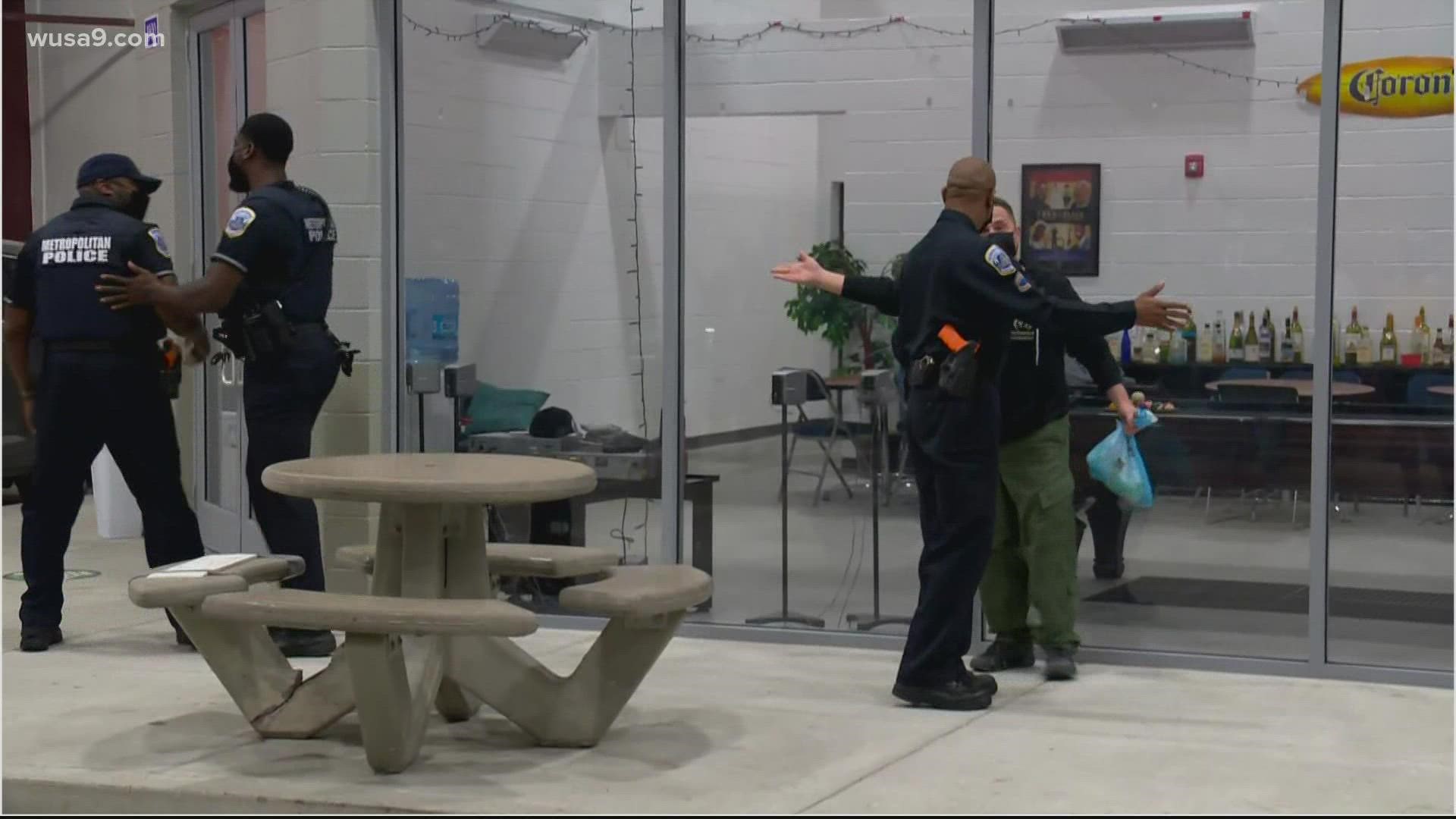WASHINGTON — A new mandatory training for D.C. Police officers is meant to help weed out misconduct in the department.
The training encourages officers to step in when they see their colleagues taking things too far.
D.C. Police Chief Robert Contee mentioned the George Floyd case as an example of when officers should have stepped in and done something.
That case and the nationwide protests that followed prompted D.C. to mandate their officers take an annual training called Active Bystandership for Law Enforcement (ABLE).
D.C. Police demonstrated how officers are being trained to intervene if they see one of their fellow officers crossing the line or doing something they should not be on Monday.
“It is a culture change program with a strong training component,” Lisa Kurtz said. “It is designed to create cultures within law enforcement agencies of active bystandership.”
Kurtz is the ABLE Project Director.
“ABLE is based on 3 pillars: preventing mistakes, preventing misconduct, and promoting officer health and wellness,” she explained.
RELATED: Help us find us: Black and Missing Foundation hopes to bring attention to missing minorities
In the training, officers learn techniques to intervene with fellow officers, subordinates, or superior officers.
The program is modeled after one pioneered in New Orleans.
“We started a program called EPIC. It stands for Ethical Policing Is Courageous,” New Orleans Police Department Deputy Superintendent Paul Noel told WUSA9.
The NOPD program was launched in 2015, after leaders and community members noticed a need for a shift in police culture.
Noel said the program was successful, and other police agencies across the country began calling and traveling to New Orleans for training to learn more.
“Then, the murder of George Floyd happened. Instead of doing it once a month, I was doing six of these a day,” Noel said.
Georgetown Law School stepped in to help with a national rollout after realizing NOPD did not have the needed resources to facilitate the program on the national level.
Police departments must apply and be accepted into the project. So far, around 180 agencies have signed onto the program.
“What we talk about with officers is rethinking what loyalty looks like – shifting that perspective from blind loyalty…to a more constructive loyalty that says I hold you to a higher standard, the communities that we serve hold us to a higher standard. So, I’m going to help you achieve that standard by stepping in to stop you from doing something before it gets to the level where anyone is harmed,” Kurtz said.
New Orleans has seen a decline in citizen complaints and some crimes. However, NOPD has only been able to gather anecdotal evidence that directly shows the program is working for them, as well as, a visible shift in the culture.
On the national level, ABLE is basing success on a series of surveys with officers and is still researching other metrics to use to see if the trainings are working.

